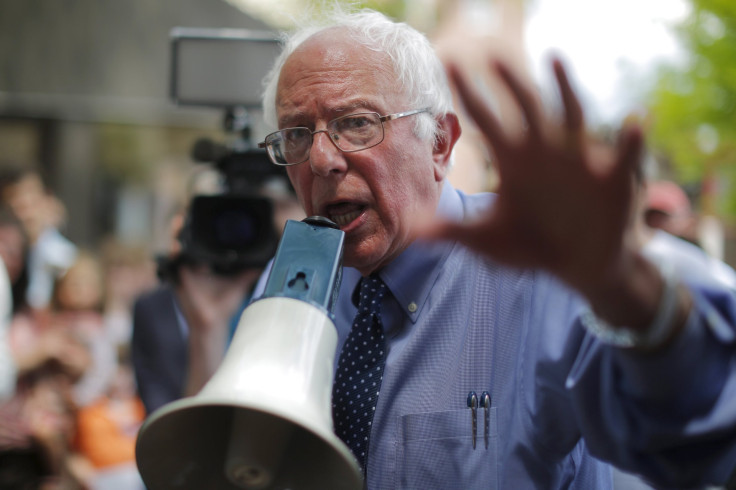Labor Support For Sanders? AFL-CIO Head Tells Local Leaders Not To Endorse Presidential Candidates

The leader of the American Federation of Labor and Congress of Industrial Organizations, known as the AFL-CIO, has issued a memo reminding its state and local leaders that they are banned from endorsing presidential candidates after two state chapters announced support for Bernie Sanders' presidential campaign.
The memo, obtained by Politico, reminds local divisions that they are not permitted to "introduce, consider, debate, or pass resolutions or statements that indicate a preference for one candidate over another," with personal statements of support also barred. While these rules are nothing new, and state leaders are likely already aware of them, the issuing of a memo repeating them is unusual.
There is a swelling of support for Sanders, a Vermont senator, in the labor movement. Affiliated leaders of the AFL-CIO have announced support for the "Labor for Bernie" group. The South Carolina and Vermont chapters of the federation have announced their support for Sanders, and speaking to Politico, Massachusetts chapter president Steven Tolman said: "Bernie Sanders has spent his life actually fighting for working people. He’s made no secret of it, and he’s used it as his mantra. And I respect that very much."
AFL-CIO endorsements are officially managed by the national executive council, who then ask for a two-thirds majority of support from member unions. The process is lengthy, and in the last two elections, when the AFL-CIO announced its support for Barack Obama, the then-candidate had already secured the necessary delegates. The pro-Sanders groups are hoping the federation will not endorse Hillary Clinton during the primaries.
Beyond the labor movement, support for Sanders is growing. A Quinnipiac University poll published yesterday found that, in the Iowa Democratic Caucus, Clinton and Sanders held 52% and 33% of support respectively. In May, a survey by the same university found Clinton on 60% and Sanders on 15%. A poll by CNN in June found that Sanders is backed by 35% of voters in the New Hampshire primaries, rising from 13% in May.
© Copyright IBTimes 2025. All rights reserved.






















